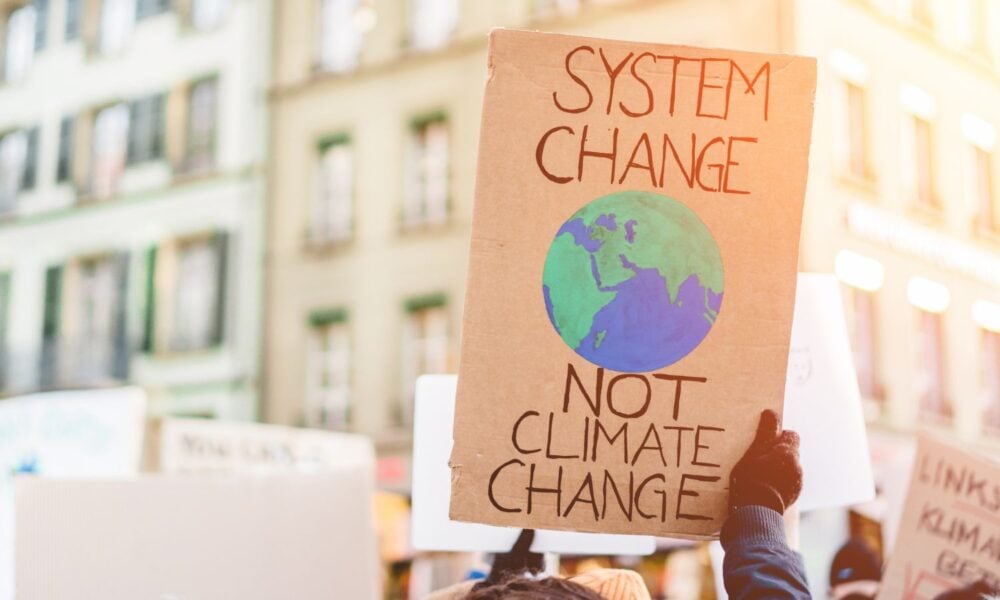In a pivotal week for environmental justice, the European Court of Human Rights (ECHR) in Strasbourg, France, delivered rulings on three climate cases. A landmark ruling in the Swiss Women’s case criticized governments for not acting in line with science and unequivocally stated that inadequate government action on climate change constitutes a violation of human rights. The other two cases were dismissed due to procedural issues, not due to the merits of the cases. The ECHR rejects as inadmissible approximately 90 percent of all cases brought before it.
Below, I detail some of the key aspects of each case and outline how the courts ruled. Looking at each of these rulings, it’s important to remember what Catarina Mota, one of the Portuguese plaintiffs, aptly notes: a victory in any one of these cases symbolizes a triumph for all, heralding a hopeful step toward holding governments accountable for securing a safe and livable planet for present and future generations.
Victory for Swiss women
A collective of elderly Swiss women challenged their government’s “woefully inadequate” climate efforts, arguing that such negligence exposed them to a heightened risk of death during heatwaves. Invoking their right to life, they demanded accelerated emission cuts to align with the global warming limit of 1.5°C set in the Paris climate agreement. The court’s ruling in this case was groundbreaking, explicitly linking climate change action with human rights protections for the first time. The ruling found that Switzerland’s inadequate climate measures violated the European Convention on Human Rights, specifically the right to private and family life due to the serious adverse effects of climate change. This victory sets a precedent for future climate litigation, affirming that climate action is a legal duty of states under human rights law.
Portuguese youth must first seek justice nationally
In a separate case, six Portuguese youth brought attention to the urgency of addressing climate change through legal avenues. Born between 1999 and 2012, these youths argued that the adverse effects of climate change, such as heatwaves and wildfires, pose a threat to their right to life. They sought to hold Portugal and 32 other countries accountable for not meeting the emissions reduction targets set under the 2015 Paris climate accord. At its core, this case argued that climate change is a major threat to human rights now and in the future. It sought to highlight that countries must do everything they can to shield people from its harmful effects, as agreed upon in the European Convention on Human Rights. This isn’t just about legal arguments; it’s a push for action based on the global scientific agreement represented by the Intergovernmental Panel on Climate Change (IPCC) political consensus of the UNFCCC.
The Union of Concerned Scientists wrote a brief for the ECHR in support of the six youth plaintiffs from Portugal in collaboration with the Center for International Environmental Law (CIEL) and Greenpeace International. Our involvement in this case drew attention to the IPCC’s urgent warning: we must cut emissions significantly and quickly to stop the planet from warming more than 1.5°C, a threshold beyond which the dangers to humanity grow sharply.
However, the Court found the application inadmissible, determining that no jurisdiction could be established for the countries outside Portugal since the group had not pursued available legal avenues domestically. This decision underscores the complex legal landscape of international environmental law and human rights, highlighting the challenges faced by claimants in addressing climate change through legal avenues.
French ambitions case lacked legal status
A third case before the court involved Damien Carême, former mayor of the French commune of Grande-Synthe, contesting France’s refusal to adopt more ambitious climate actions. This case sought to evaluate whether inadequate governmental response to climate change constitutes a breach of the right to life by increasing the vulnerability of homes and communities to climate-induced risks. Similar to the Portuguese case, the European court also ruled this case inadmissible because the applicant moved away from Grande-Synthe and therefore no longer had status under the Convention.
Implications and future outlook
These rulings, particularly the Swiss victory, could significantly impact Europe and potentially influence the United States by setting an international precedent for linking climate change action with human rights protections. All these cases uplifted climate science and the ruling in the Swiss case calls for better integration of robust climate science into national policy. The decisions could well inspire similar legal strategies and increase the global momentum for stronger climate action and accountability. Furthermore, they highlight the potential for climate litigation to inspire similar legal frameworks globally, potentially leading to broader applications against companies for failing to adequately address their climate impacts.
At the Science Hub for Climate Litigation, we stand at the nexus of science and the law. Our work emphasizes the urgency of climate action in the face of undeniable scientific evidence and the stark realities faced by communities worldwide. These cases are not just about legal principles; they address crucial issues about the future of our planet and the need to safeguard human rights in the face of climate change. The Swiss victory shines a spotlight on the judiciary’s vital role in addressing climate change—potentially paving the way for future legal actions to uphold environmental justice and the protection of human rights in the era of climate change.

